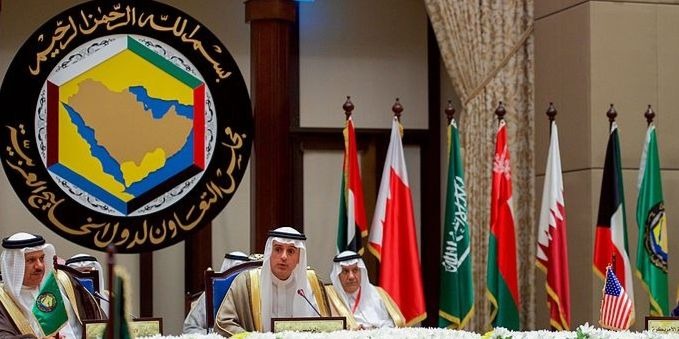 After years of conflict, the Sri Lankan economy is on the mend and the IMF has approved a $1.5 billion phased loan to support its development. In this context, Piumi Gamanayake assesses the current performance of the economy and its ability to adhere to and achieve the fiscal goals set by IMF and government.
After years of conflict, the Sri Lankan economy is on the mend and the IMF has approved a $1.5 billion phased loan to support its development. In this context, Piumi Gamanayake assesses the current performance of the economy and its ability to adhere to and achieve the fiscal goals set by IMF and government.
Sri Lanka is poised to escalate economic propulsion and uplift investor opportunities in the coming months, supported by a substantial phased loan from the International Monetary Fund (IMF). The IMF’s Executive Board approved the three year lending arrangement under the Extended Fund Facility (EFF) in June for an amount equivalent to SDR 1.1 billion (about US$1.5 billion) to support the country’s economic reform agenda.
The EFF plays a key role in supporting the government to reset its macroeconomics policies, overcome the main vulnerabilities, improve reserve momentum and strengthen stability and resilience. The lending programme also helps the government to improve its competitiveness and better integration with global markets by means of comprehensive trade reforms and facilitation of the investor sentiments.
The programme, which is built on six pillars of fiscal consolidation, revenue mobilisation, public financial management reform, state enterprise reform, flexible inflation targeting, and reforms to the trade and investment regime, is set to support Sri Lanka’s target of reducing the fiscal deficit to 3.5% by 2020.
Positive projections
The Sri Lankan economy is predicted to grow by 5% in 2016, surpassing the growth rates achieved for the previous two years. Our mid-term growth probabilities are looking favourable, backed by the solid base of human and physical capital as well as strategic positioning. The growth momentum is likely to be further strengthened by increased construction projects and sustained proliferation of the service sector, steered by tourism and information & communication technology.
In the first quarter the financial services sector showed promising growth by expanding 15.9% and the services industry improved by 4.9% as well. The construction sector continues to perform steadily and strongly with projects increasing by 12% year on year and the industrial sector also projected a rise in growth by 8.3%. The arrangements disclosed in early June would raise a fixed regulation restricting the free movement of capital. It however is expected to encourage free movement of funds and promote foreign direct investment. The government is positive about meeting the IMF’s growth projections for 2016, the expansion of GDP by 5.5% year on year in the first quarter.
Challenges ahead
However, although there is a great deal to be optimistic about Sri Lanka faces several external obstacles including the slowing down of the Chinese economy and Brexit, (through the weaker GBP and resultant constraints on UK importers of Sri Lankan apparel) which could weaken the export revenue. Another factor that could have a direct economic impact is the deteriorating oil prices which could lead to a fall in inflows from the Sri Lankan employees overseas. Foreign remittances – which accounts for 9% GDP – is the largest source of foreign income.
In mid-February, Fitch downgraded Sri Lanka’s long-term foreign and local currency issuer default ratings to B(+) from BB(-) with a negative outlook, stating concerns over increased refinancing risks. In order to address this, the government has taken necessary action to broaden its tax base, approving the reintroduction of a capital gains tax and increasing its value-added tax (VAT) from 11% to 15%, while also extending its coverage to include more goods and services.
Although there has been an improvement in fiscal performance in the first quarter of 2016, with revenue growth of 20% and budget deficit improving by 14%, these figures remain below budgeted targets with revenue falling short by 13% and budget deficit being 34% higher than targeted. Tax revenue remains mainly dependent on indirect taxes and import based taxes. With economic growth predicted to slacken in 2016, it will be challenging to achieve the anticipated fiscal targets and this underlines the importance of reforming the Inland Revenue department to simplify tax payment processes and simplifying the tax system, and minimising room for discretion in tax related decisions by officials.
Conclusion
The recent global competitiveness report released by the World Economic Forum on the 28 September 2016 shows that Sri Lanka – although it has maintained a stable score – has slipped three positions to languish at 71 whilst neighbouring giant India has emerged as the best performer in South Asia at 39. The report however acknowledged Sri Lanka as the most advanced economy in the region with quality of infrastructure improving at a significant rate and overtaking the rest of the region in the areas of technological readiness, health, primary education and higher education. To quote the WEF’s GCR:
“After years of conflict, the country needs to concentrate on triggering the efficiencies that will drive further growth—for example, by restructuring the labour market and investing in technological readiness, where it lags significantly behind economies at a similar stage of development”.
Data: Department of Census and Statistics in mid-June.
Cover image credit: International Monetary Fund CC BY-NC-ND 2.0
This post gives the views of the author, and not the position of the South Asia @ LSE blog, nor of the London School of Economics. Please read our comments policy before posting.
About the Author
 Piumi Gamanayake is a Research Assistant at a think tank engaged in independent research of Sri Lanka’s international relations and strategic interests. Her research focuses on soft power, economic development and economic diplomacy in Sri Lanka. She holds a BSc Honours in Economics from the London School of Economics.
Piumi Gamanayake is a Research Assistant at a think tank engaged in independent research of Sri Lanka’s international relations and strategic interests. Her research focuses on soft power, economic development and economic diplomacy in Sri Lanka. She holds a BSc Honours in Economics from the London School of Economics.








1 Comments